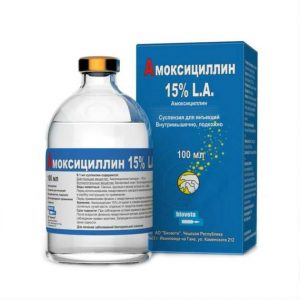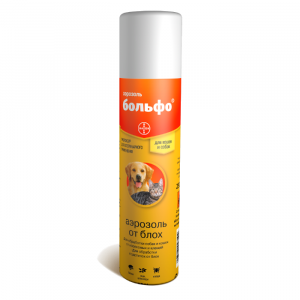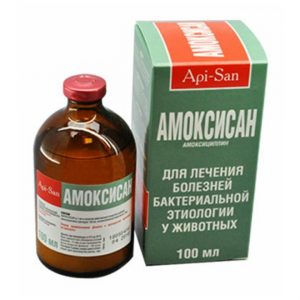Description
Release form
Film-coated tablets.
Packing
28 pcs
Pharmacological action
Angiotensin II receptor antagonist (type AT1). Angiotensin II is the primary vasoactive hormone of RAAS and plays a significant role in the pathophysiology of arterial hypertension through AT1 receptors. It is assumed that olmesartan blocks all the effects of angiotensin II mediated by AT1 receptors, regardless of the source and route of synthesis of angiotensin II.
In arterial hypertension, olmesartan causes a dose-dependent, prolonged decrease in blood pressure. There is no evidence of the development of arterial hypotension after taking the first dose of the drug, tachycardia during long-term treatment (for Cardosal ® 20 and Cardosal ® 40 drugs) and the development of withdrawal syndrome (a sharp increase in blood pressure after drug withdrawal).
Taking olmesartan medoxomil 1 time / day provides an effective and mild decrease in blood pressure within 24 hours, and the effect after a single dose is similar to the effect of taking the drug 2 times / day in the same daily dose.
The hypotensive effect of olmesartan develops, as a rule, after 2 weeks, and the maximum effect develops approximately 8 weeks after the start of therapy.
Pharmacokinetics
Absorption and distribution of
Olmesartan medoxomil is a prodrug. It quickly turns into a pharmacologically active metabolite olmesartan under the action of enzymes in the intestinal mucosa and in the portal blood during absorption from the gastrointestinal tract. Olmesartan medoxomil unchanged in the blood plasma was not detected. The bioavailability of olmesartan averages 25.6%. Cmax of olmesartan in plasma is achieved on average 2 hours after ingestion of olmesartan medoxomil inside and increases approximately linearly with a single dose increase to 80 mg.
Eating does not significantly affect the bioavailability of olmesartan, therefore, olmesartan medoxomil can be taken regardless of the meal.
No clinically significant differences in pharmacokinetic parameters of olmesartan depending on gender have been identified.
Olmesartan binds to plasma proteins (99.7%), but the potential for a clinically significant bias in protein binding during the interaction of olmesartan with other highly binding and simultaneously used drugs is low (the absence of a clinically significant interaction between olmesartan and warfarin confirms this) . The relationship of olmesartan with blood cells is negligible.
Metabolism and excretion
Total plasma clearance is usually 1.3 l / h (coefficient of variation – 19%) and is relatively low compared with hepatic blood flow (approximately 90 l / h). Renal excretion is approximately 40%, with bile – about 60%. Intrahepatic circulation of olmesartan is minimal. Since most of olmesartan is excreted through the liver, its use in patients with bile duct obstruction is contraindicated.
T1 / 2 of olmesartan is 10-15 hours after repeated oral administration. A significant effect of therapy is achieved after taking the first few doses of the drug, and after 14 days of repeated use, no further cumulation is observed. Renal clearance is approximately 0.5-0.7 l / h and does not depend on the dose of the drug.
Pharmacokinetics in special clinical cases
In patients with impaired renal function, AUC in steady state was increased by approximately 62%, 82% and 179% in case of mild, moderate and severe renal impairment, respectively, compared with healthy volunteers .
After a single oral administration, the AUC values for olmesartan were 6% and 65% higher in patients with mild to moderate hepatic impairment, respectively, compared with healthy volunteers. The unbound fraction of olmesartan 2 hours after taking the dose in healthy volunteers, in patients with mild to moderate hepatic impairment, was 0.26%, 0.34%, and 0.41%, respectively.
Indications
Essential arterial hypertension.
Contraindications
Hypersensitivity to the active substance or to any of the excipients that are part of the drug
biliary obstruction
renal failure (CC less than 20 ml / min), condition after kidney transplantation (no clinical experience)
galactosemia or
malabsorption syndrome pregnancy and lactation period
age up to 18 years (efficacy and safety have not been established).
With caution, the drug should be used in the following conditions or diseases: aortic or mitral valve stenosis hypertrophic obstructive cardiomyopathy primary aldosteronism hyperkalemia, hyponatremia (risk of dehydration, arterial hypotension, renal failure) renal failure (CC more than 20 ml / min) chronic heart failure bilateral renal artery stenosis or artery stenosis of a single kidney coronary artery disease cerebrovascular disease elderly (over 65 years) impaired liver function conditions, accompanied by a decrease BCC (including diarrhea, vomiting), as well as following a diet with sodium restriction, simultaneous use with diuretics.
Use during pregnancy and lactation
There is no experience with the use of olmesartan medoxomil in pregnant women.
However, due to reports of severe teratogenic effects of drugs acting directly on the renin-angiotensin system, like any drug of this class, olmesartan is contraindicated during pregnancy.
If pregnancy occurs during therapy with Cardosal ®, the drug must be discontinued.
There is no data on whether olmesartan with breast milk is excreted, therefore, if it is necessary to use the drug Cardosal ® during lactation, breastfeeding for the period of taking the drug should be discontinued.
Composition
1 tablet contains:
Active substances:
olmesartan medoxomil 10 mg.
Excipients:
microcrystalline cellulose – 10 mg, low-substituted
hyprolose – 20 mg, lactose
monohydrate – 61.6 mg, hypodermic
6-10 mPa? s – 2.5 mg,
magnesium stearate – 0.9 mg.
Composition of the film coat:
hypromellose 5 MPa? s – 3.6 mg,
talc – 0.7 mg,
titanium dioxide (E171) – 0.7 mg.
Dosage and administration of
It is recommended to take the Cardosal ® preparation inside every day at the same time, regardless of the meal 1 time / day.
The recommended starting dose for adults is 10 mg (1 tab. Cardosal ® 10) 1 time / day.
In case of insufficient decrease in blood pressure when taking the drug at a dose of 10 mg / day, the dose of the drug can be increased to 20 mg / day (Cardosal ® 20 may be used). If it is necessary to further reduce blood pressure, the dose of the drug can be increased to a maximum of 40 mg / day (it is possible to use the drug Cardosal ® 40) or an additional diuretic (hydrochlorothiazide) can be prescribed. The maximum daily dose is 40 mg.
Side effects of
Possible side effects are listed below in descending incidence:
very often (> 1/10)
often (> 1/100 <1/10) sometimes (> 1/1000, <1/100) rarely (> 1/10 000, <1/1000) very rarely (<1/10 000), including individual messages. From the hemopoietic system: very rarely – thrombocytopenia. From the side of the central nervous system: sometimes – dizziness is very rare – headache. From the respiratory system: often – pharyngitis, rhinitis is very rare – cough, bronchitis. From the digestive system: often – diarrhea, dyspepsia, gastroenteritis is very rare – abdominal pain, nausea, vomiting. From the skin: very rarely – itching, rash, angioedema, allergic dermatitis, urticaria. From the musculoskeletal system: often – back pain, bone pain, arthralgia, arthritis very rarely – muscle cramps, myalgia. From the urinary system: often – hematuria, urinary tract infection is very rare – acute renal failure. On the part of laboratory indicators: very rarely – an increase in serum creatinine and urea, an increase in the activity of liver enzymes. From the cardiovascular system: sometimes – angina pectoris, tachycardia rarely – a marked decrease in blood pressure. On the part of the metabolism: often – increased levels of CPK, hypertriglyceridemia, hyperuricemia rarely – hyperkalemia. On the part of the body as a whole: often – chest pain, flu-like symptoms, peripheral edema very rarely – asthenia, fatigue, malaise, drowsiness. Drug Interaction Coadministration with potassium-sparing diuretics, potassium preparations, potassium-containing salt substitutes, or other medicinal products is not recommended, capable of raising serum potassium levels (eg, heparin), this can lead to increased serum potassium levels. The antihypertensive effect of olmesartan therapy may be potentiated when combined with other antihypertensive agents. NSAIDs, including acetylsalicylic acid at doses greater than 3 g / day, as well as COX-2 inhibitors, and angiotensin II receptor antagonists can act synergistically by reducing glomerular filtration. The concomitant use of NSAIDs and angiotensin II receptor antagonists may present with a risk of acute renal failure, so monitoring of renal function at the beginning of treatment is recommended, as well as regular intake of sufficient fluid. However, concomitant treatment may reduce the antihypertensive effect of angiotensin II receptor antagonists, resulting in a partial loss of their therapeutic efficacy. When administered with antacids (magnesium and aluminum hydroxide), a moderate decrease in the bioavailability of olmesartan may occur. There are reports of a reversible increase in serum lithium concentration and toxicity during the concomitant use of lithium with ACE inhibitors and angiotensin II receptor antagonists, so the use of olmesartan medoxomil in combination with lithium is not recommended. If appropriate combination therapy is required, regular monitoring of serum lithium levels is recommended. overdose Symptoms: marked decrease in blood pressure. Treatment: it is recommended to lay the patient on his back with his legs elevated with a marked decrease in blood pressure. Gastric lavage and / or activated carbon intake is recommended, therapy aimed at correction of dehydration and water-salt metabolism disorders, OCC replacement. Storage conditions Keep out of the reach of children at a temperature not exceeding 30 ° C. The Expiration of is 3 years. Pharmacy terms Prescription dosage form dosage form tablets Berlin-Chemie / Menarini Germany




